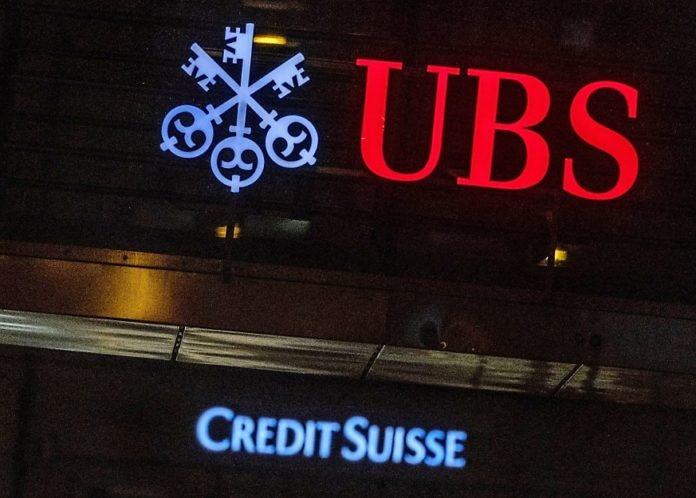Rescue Deal for Troubled Lending Giant Credit Suisse Agreed by Regulators
Financial markets around the world were left reeling as the collapse of two smaller US banks, Silicon Valley Bank and Signature Bank, sparked concerns over the global financial system. However, fears of a wider crisis seem to have subsided after regulators agreed to a rescue deal for Credit Suisse, a troubled lending giant.
The deal involved Credit Suisse being bought by rival company UBS on Sunday, with regulators working tirelessly to secure the takeover. Despite being loss-making for some time, Credit Suisse was deemed too big to fail due to its importance to the banking system. The 167-year-old institution, which had struggled with a string of scandals over the last few years, was sold to UBS at just over $3.15bn (£2.6bn), a fraction of its $8bn price tag on Friday.
Impact on Europe and the US
Although the collapse of Credit Suisse and the smaller US banks sparked concern, the swift action by regulators and the purchase of Credit Suisse by UBS appears to have eased investor fears. The hope that the deal would help contain the crisis helped lift shares in Europe and the US.
London’s FTSE 100, which had previously faced early losses, closed up roughly 0.9%. The major indexes in Europe also ended higher, with UBS climbing around 1.5% by the end of the day. In the US, the three big exchanges were mixed as worries about another regional bank, First Republic, remained.
US Banks in Trouble
Shares in San Francisco-based First Republic sank more than 30%, as the injection of funds by eleven of America’s biggest banks last week failed to restore confidence in the bank’s future. There were reports of another effort to stabilize the bank as customers transferred their money. Shares of some other banks in the US and Europe also remained under pressure.
UK Government Reassurance
A spokesperson for UK Prime Minister Rishi Sunak reassured investors that UK banks were “safe and well-capitalised” following the emergency rescue of Credit Suisse. Central banks around the world made similar comments. Six central banks, including the US Federal Reserve, announced that they would boost the flow of dollars in the global financial system to ensure banks had easy access to cash.
Expert Opinions
Despite the panic, experts do not expect a repeat of 2008 when banks stopped lending to each other, which sparked a global recession. Banks have been struggling with the recent rise in interest rates, which has left some sitting on substantial losses. This led to the collapse of two medium-sized lenders, Silicon Valley Bank and Signature Bank, in the US last week and sparked concerns that other banks could get into trouble.
UBS Purchase of Credit Suisse
UBS chairman Colm Kelleher stated that the bank would wind down Credit Suisse’s investment banking operations, but it was “too early” to say what would happen regarding jobs. Credit Suisse has around 74,000 staff, around 5,000 of whom are in the UK.
Deposit Protection
Despite ongoing struggles for some banks, ordinary people have little reason to fear for their funds. In the highly unlikely scenario that a bank or building society actually collapses, deposit protection is in place. In the UK, that means £85,000 per person, per institution is protected (or £170,000 in a joint account). There is also a higher temporary limit of £1m for six months if you get a sudden influx of funds, such as an inheritance. Protection is similar in the EU, and the US government has safeguarded deposits of up to $250,000 for a long time. This means that people do not have to worry about losing their money in a bank collapse.
Conclusion
In conclusion, the collapse of Credit Suisse and the smaller US banks sparked concern, but the swift action by regulators and the purchase of Credit Suisse by UBS appears to have eased investor fears. Despite ongoing struggles for some banks, deposit protection ensures that ordinary people’s funds are safe. While experts do not expect a repeat of the 2008 crisis, it is important to remain vigilant and monitor the situation closely. With the cooperation of central banks around the world, the financial system can continue to navigate these challenging times.








